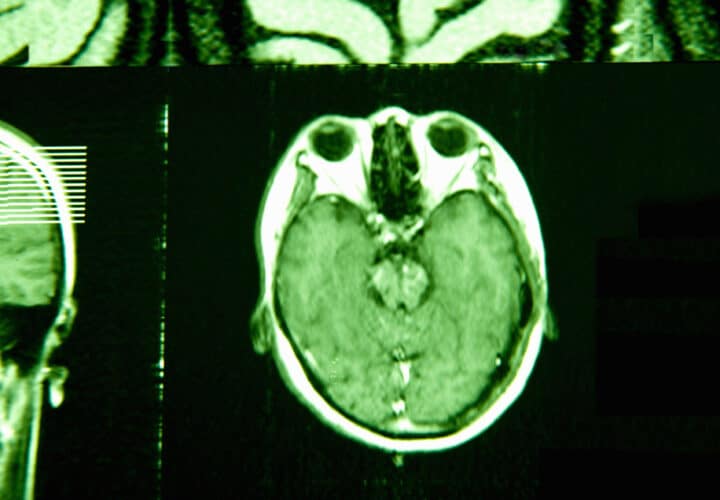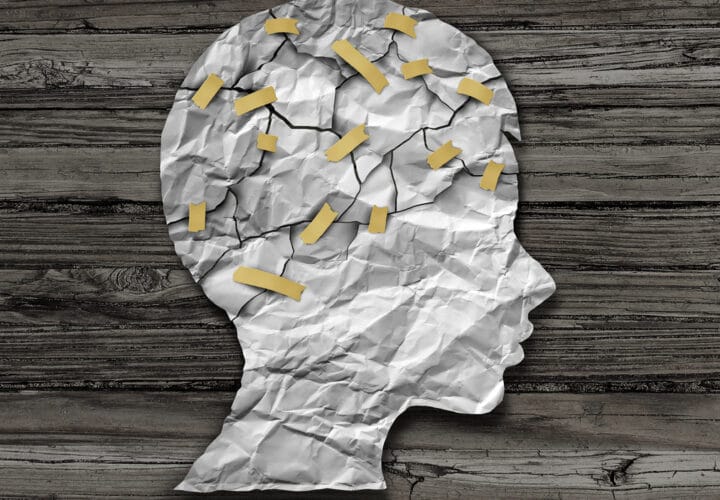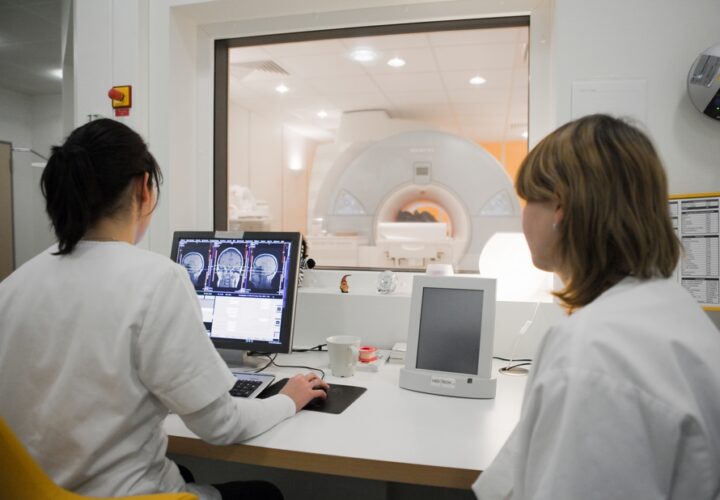Diagnostics powered by artificial intelligence could one day make it easier, faster, and more accessible to spot Alzheimer's.
An Alzheimer’s diagnosis is tricky: Is it a bad day and the normal forgetfulness that accompanies old age, or is it the beginning signs of dementia? Even if a family member, doctor or patient does suspect Alzheimer’s, the path to diagnosis is riddled with obstacles, as most insurance does not cover diagnostic tools like PET scans.
That might change if artificial intelligence (AI) makes its way into your doctor’s office. A new program was able to predict Alzheimer’s an average of six years before patients got a diagnosis, according to researchers from the University of California in San Francisco, University of California, Berkeley, and Big Data in Radiology research group.
To make the prediction, a team of physicians and engineers used a process known in AI as “deep learning”—teaching machines to learn from experience the way humans do. They trained a computer to recognize symptoms of Alzheimer’s by looking at metabolism using what’s called 8-F-fluorodeoxyglucose positron emission tomography (FDG-PET). In FDG-PET, a radioactive glucose compound is injected into the blood. A PET scan then measures how quickly the glucose is transported in brain cells.
“Differences in the pattern of glucose uptake in the brain are very subtle and diffuse,” said study co-author Jae Ho Sohn, M.D., from UCSF. “People are good at finding specific biomarkers of disease, but metabolic changes represent a more global and subtle process.”
The program scanned data from over 1,000 patients. The researchers used 90 percent of the data to teach the program what to look for to correctly identify Alzheimer’s patients, then tested the program on the remaining 10 percent. When they tested it on 40 patients the program had never studied, it correctly identified 100 percent of the patients with Alzheimer’s six years before their diagnosis.
“We were very pleased with the algorithm’s performance,” said Sohn. “It was able to predict every single case that advanced to Alzheimer’s disease.”
Some might question why people would want to know that Alzheimer’s was coming for them with certainty. But studies show that an earlier diagnosis has a positive effect on prolonging cognitive function and reducing the cost of Alzheimer’s. It also gives patients a chance to enter clinical trials. With more clinical trials focusing on preventing Alzheimer’s in the very early stages before symptoms are noticeable, the need for participation from people with the biomarkers of the disease without symptoms is at a high.
“If we diagnose Alzheimer’s disease when all the symptoms have manifested, the brain volume loss is so significant that it’s too late to intervene,” said Sohn. “If we can detect it earlier, that’s an opportunity for investigators to potentially find better ways to slow down or even halt the disease process.”
AI is only gaining steam in the medical world—over the last five years, 4.3 billion was raised in funding for artificial intelligence startups, according to a report by CB Insights. Next, the study authors hope to use this technology to look for patterns in the formation of beta-amyloid and tau, two proteins that form into clumps in Alzheimer’s disease. A study from earlier this year showed that even almost undetectable amounts of beta-amyloid could predict future levels of tau. Those scientists, also from University of California, Berkeley, found that memory loss is the last sign of Alzheimer’s, often showing up decades after changes in the brain begin.



